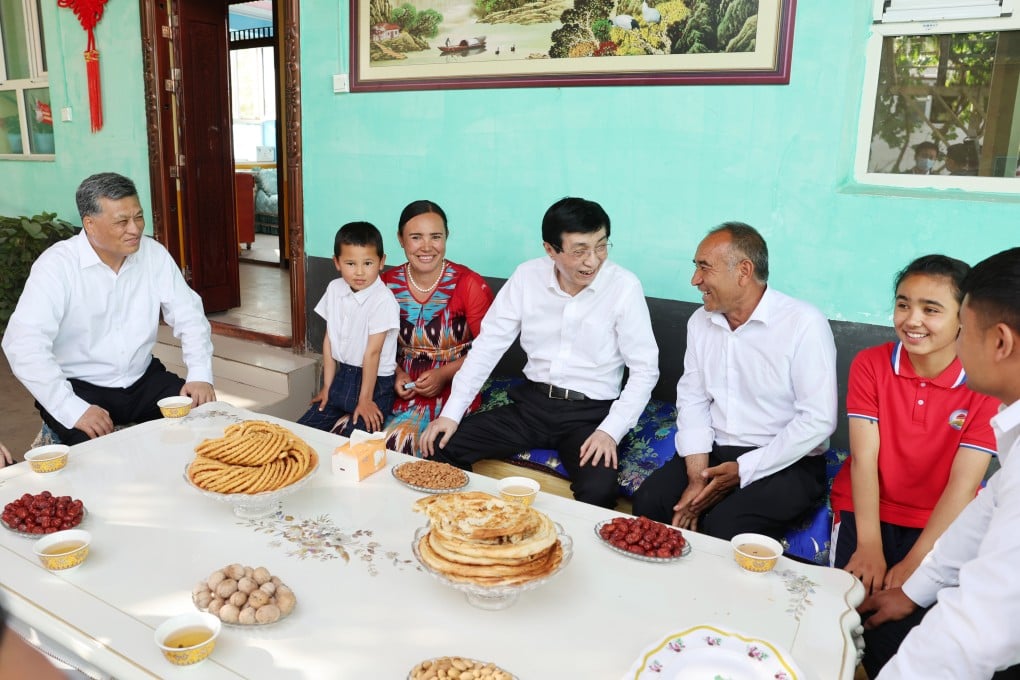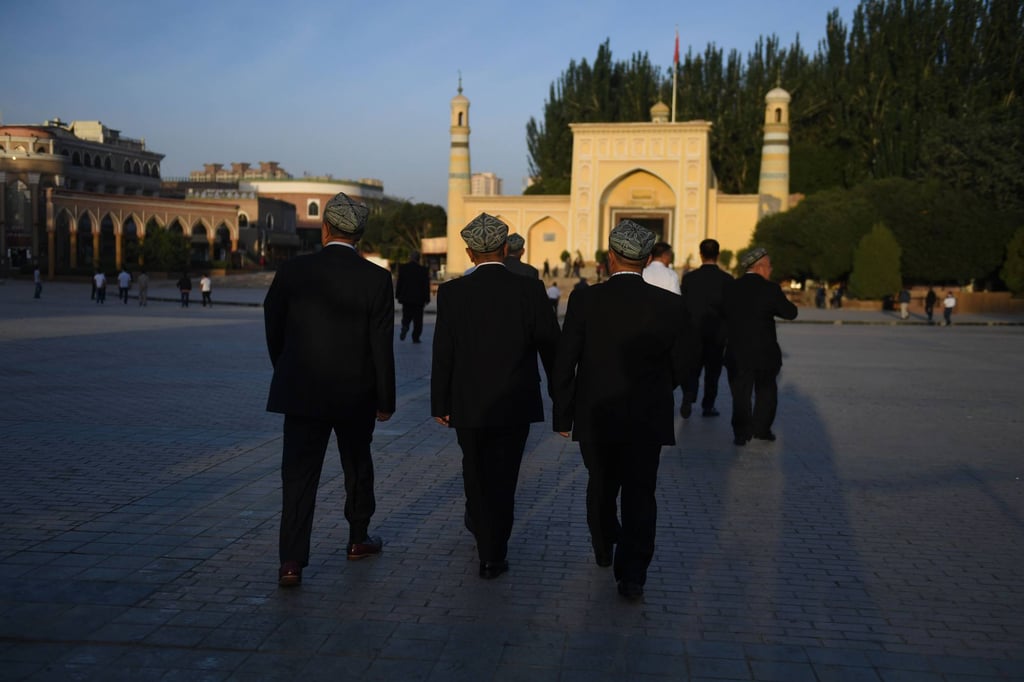In Xinjiang, China’s top political adviser Wang Huning calls for ‘correct historical view’ of Chinese nation
- ‘Social stability of Xinjiang was hard-earned’, Wang Huning says, urging officials to ensure all ethnic groups ‘stick together like pomegranate seeds’
- Comments from former ideology tsar come during three-day inspection trip to ethnically diverse far-western region

The comments from Wang Huning, who took over as chairman of the Chinese People’s Political Consultative Conference in March, came as he completed a three-day inspection trip to the ethnically diverse far-western region on Wednesday, according to state news agency Xinhua.
The aim was to get a clearer picture of progress in promoting ethnic unity, religious policy implementation, grass-root level governance, and the lives of ordinary people, Xinhua said.
Apart from the capital Urumqi and major cities like Kashgar, Wang was also reported to have visited several rural communities, schools, mosques and businesses.
“The social stability of Xinjiang was hard-earned. It must be cherished and fully consolidated,” Wang was quoted as saying in Kashgar.
“[Officials should] continue to do a good job to unite people, so that people of all ethnic groups will stick together like pomegranate seeds,” he added, referencing an often-repeated metaphor about unity among China’s 56 ethnic groups.
